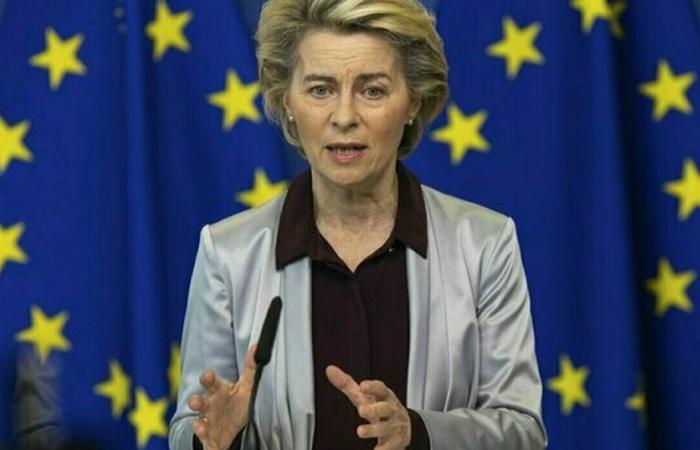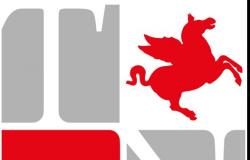
She was the first woman to lead the European Commission and seems in excellent position to obtain a second mandate: former federal vice-president of the Christian Democratic Union of Germany (CDU) and minister for 14 years of former German Chancellor Angela Markel, Ursula von der Leyen in these last European elections was the Spitzenkandidatin, i.e. the number one candidate, of the European People’s Party (EPP). In this round the EPP managed to elect 189 deputies, 22 more than in the last mandate, emerging as the most voted party. On 18 July the EU parliament will vote on the new president of the Commission: Von der Leyen could be designated by the Council for a second mandate, but the vote in the Chamber is secret. In the meantime it is worth remembering the alliances and the battles carried out by Von der Leyen in her first mandate, during which she found herself leading the continent in one of the most critical moments in contemporary history, namely the Covid-19 pandemic, and then in the conflict between Russia and Ukraine .
Von der Leyen towards an encore? Tajani: «Italy has the right to the EU vice-presidency». Meloni, one-hour meeting with Orban
The appointment in 2019
She was nominated for the first time at the helm of the European Commission in 2019. The EU Parliament followed up on this nomination on 16 July, electing her with 383 votes in favor (9 more than the 374 needed), 327 against, 22 abstentions and one null ballot. , after presenting its guidelines with a speech that convinced several undecided MEPs, including MEPs from the 5 Star Movement and the Polish ones of the conservative Law and Justice party.
The Covid-19 pandemic
We reach 2020. The Covid 19 pandemic spreads throughout the world and also affects Europe. Von der Leyen sees it as an opportunity to demonstrate his value and skills. It has implemented various political and economic measures to help the countries most affected by the contagion. On 16 March 2020 he proposed closing the borders of the 26 Member States of the European Union for 30 days, which could be further extended if necessary. Then, the creation of a common debt to restart the economies of the Twenty-Seven after the lockdown: on 18 December 2020, Parliament and the Council reached a final agreement on Next Generation EU, the 750 billion euro program for the relaunch of a The EU economy overwhelmed by the pandemic crisis. Italy had access to a share of 209 billion, a slice which is equivalent to 27.8% of the entire amount.
Pfizergate
Lights and shadows, however, on the management of the pandemic: recently the European Public Prosecutor’s Office, or Eppo, announced that a an investigation into allegations of alleged criminal wrongdoing in relation to vaccine negotiations between Ursula von der Leyen and the CEO of Pfizer. The subject of the investigation are some informal contacts that occurred via text message between von der Leyen and the CEO of the pharmaceutical giant Pfizer, Albert Bourla, before the maxi-order of vaccines against Covid. Those informal negotiations would have helped pave the way for the drafting of a contract for 1.8 billion doses of vaccine, the largest procurement ever concluded by the European Union.
Brexit
Also under the mandate of Von der leyen, on 24 December 2020 the prime minister British Boris Johnson announced the end of long negotiations with the European Union for post-Brexit political, diplomatic and trade relations. The president of the EU Commission had defined the negotiations between the European Union and the United Kingdom as a “long road”, lasting over four and a half years since the referendum on Brexit in June 2016.
Green deal
Climate and energy were two other essential topics for Von der Leyen, who defended the choice and strategy of the Green deal, or European Green Pact. It is the European Commission’s response to the global climate crisis. The agreement was born with the goal of making Europe a climate-neutral continent by 2050. This pact proposes to review every existing law on sustainability, introducing new laws to promote energy efficiency and the circular economy. The European Green Deal is based on the sustainability objectives promoted by the United Nations 2030 Agenda.
Russian-Ukrainian war
«The war has returned to Europe. Almost thirty years after the Balkan wars, and over half a century after Soviet troops marched on Prague and Budapest, the sirens of civil protection are once again ringing in the heart of a European capital.” With these words, on March 1, 2022, the president took a stand in front of the European Parliament gathered in plenary session, after listening to Zelensky’s words via video link from Kiev. Von der Leyen has always expressed a position of openness and support towards the Ukrainian people, offering significant support also in the military sphere. Since February 6, when the European Parliament and the EU Council reached an agreement on a 50 billion euro fund for Ukraine, Brussels has sent 6 billion euros to Kiev. His opposition to the Russian leadership was equally clear. During the election campaign that has just ended, Von der Leyen ruled out collaborating with “Putin-friendly” political parties. “We must protect our democracy and our values.” On April 8, 2022, you visited Bucha, one of the symbolic places of the horrors of this war. Ukraine’s path to entry into the European Union concretely began here.
Possible alliances in the second mandate?
As regards the bis mandate, the composition of the new Parliament makes possible a re-edition of the alliance composed of EPP, S&D and RE, which for the last five years has supported the European Commission led by Von der Leyen. In this scenario, however, it is not excluded that the EPP could make agreements on individual issues not with one of the right-wing parliamentary groups present in the European Parliament, but with individual political parties, such as the Brothers of Italy. Prime Minister Giorgia Meloni may be willing to give her her support: a package of votes in exchange for a commissioner. As Open reports, five years ago there were 80 snipers and they put his election in danger. On July 18th, at least 10% of the 440 starting votes were already counted. This is why the votes that could come from Ecr are important. Furthermore, in recent months von der Leyen had stated that she was ready to collaborate with those political forces that recognize themselves in democracy and the rule of law and are ready to support Ukraine.
© ALL RIGHTS RESERVED
Read the full article at
The messenger





